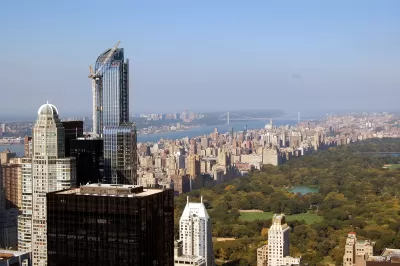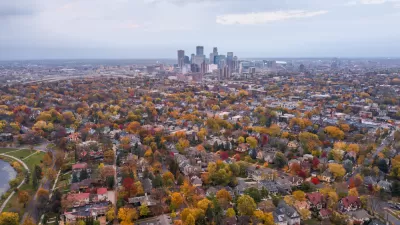Homeowners in almost every corner of the United States are making more off the accruing value of their homes every hour than minimum wage workers. In some cases, homeowners are even making a lot more than decent middle class wages.

A post on the Zillow Research digs into the amount of money homeowners are making in equity in large cities around the United States—finding that owning a home pays better on an hourly basis than many jobs in today's real estate market.
For instance, "[t]he typical U.S. homeowner is gaining $7.09 of equity in their home every working hour, $0.16 less than federal minimum wage." And, "[h]ome values in San Jose, Calif., San Francisco and Seattle have been appreciating more than 3.5 times faster per working hour than the cities’ minimum wage workers earn." In San Jose's case, more than 3.5 times faster is quite a bit more: "In San Jose, the typical homeowner is gaining $99.81 of equity in their home every hour they’re at the office. The city’s hourly minimum wage is $13.50."
In all, "owners of the median-valued home in 24 of the nation’s 50 largest cities earned more in equity per hour over the past year than their local minimum wage."
The analysis provides a new angle on equity, just days after a report by financial analytics company Black Knight found that homeowner equity reached a new record in 2017.
FULL STORY: Homes 'Earn' Minimum Wage or More in Almost Half the Nation's Largest Cities

Planetizen Federal Action Tracker
A weekly monitor of how Trump’s orders and actions are impacting planners and planning in America.

Maui's Vacation Rental Debate Turns Ugly
Verbal attacks, misinformation campaigns and fistfights plague a high-stakes debate to convert thousands of vacation rentals into long-term housing.

San Francisco Suspends Traffic Calming Amidst Record Deaths
Citing “a challenging fiscal landscape,” the city will cease the program on the heels of 42 traffic deaths, including 24 pedestrians.

Amtrak Rolls Out New Orleans to Alabama “Mardi Gras” Train
The new service will operate morning and evening departures between Mobile and New Orleans.

The Subversive Car-Free Guide to Trump's Great American Road Trip
Car-free ways to access Chicagoland’s best tourist attractions.

San Antonio and Austin are Fusing Into one Massive Megaregion
The region spanning the two central Texas cities is growing fast, posing challenges for local infrastructure and water supplies.
Urban Design for Planners 1: Software Tools
This six-course series explores essential urban design concepts using open source software and equips planners with the tools they need to participate fully in the urban design process.
Planning for Universal Design
Learn the tools for implementing Universal Design in planning regulations.
Heyer Gruel & Associates PA
JM Goldson LLC
Custer County Colorado
City of Camden Redevelopment Agency
City of Astoria
Transportation Research & Education Center (TREC) at Portland State University
Jefferson Parish Government
Camden Redevelopment Agency
City of Claremont




























